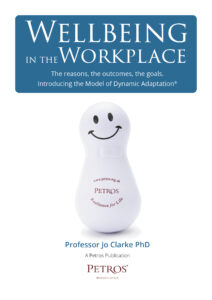Levels of Intervention

Understanding how to enhance positive outcomes for staff while reducing the negative ones, is not simply laudable, it’s necessary.
When considering how to intervene to enhance mind health at work it can be useful to think about what you want types of interventions to achieve.
For example:
- Primary interventions aim to promote good psychological health and require action on its determinants to prevent dysfunctional outcomes
- Secondary interventions involve the early detection of dysfunctional outcome, followed by appropriate action
- Tertiary interventions are aimed at reducing the impact of the dysfunctional outcome and promote quality of life through active rehabilitation
Prevention for better outcomes and long-term cost savings
Most organisations have tertiary interventions in place in the form of Employee Assistance Programmes, Occupational Health services or external referrals. Reacting to dysfunctional outcomes, however, whilst necessary, should not be the full extent of organisational response to promoting and supporting mind health. Far from it, because prevention means better outcomes and long-term cost savings. Primary and secondary interventions are, by definition, preventative and therefore lead to better personal outcomes, less fallout and, potentially, huge financial savings.
Getting up stream
When it comes to levels of intervention, in my experience, most organisations focus resources at helping people recover. Which is a shame. In terms of physical health and safety, it is rather like relying on first aid and medical intervention because people keep having accidents, rather than getting “up stream” to discover WHY they keep having accidents in the first place. Because of the weight of emphasis on physical health and safety at work, fatal injuries have been reduced by almost three-quarters.
It is time to pay equal attention to psychological health and safety.
If you’d like to learn more, the Petros eBook, Wellbeing in the Workplace, explains how your organisation can ensure your people aren’t just surviving but thriving. It also explains the The Model of Dynamic Adaption® which suggests WHERE and, importantly, HOW to intervene, thus promoting the best possible mind health for your staff.
Learn more about Petros Founder and Managing Director, Professor Jo Clarke PhD and her highly experienced team.






